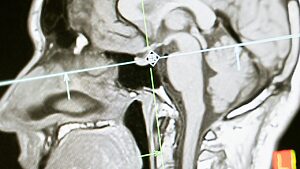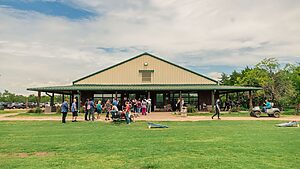Drug cravings pose a significant challenge for individuals in recovery. These intense urges to use substances can strike unexpectedly, threatening hard-earned progress toward sobriety. Understanding cravings and developing effective coping strategies is crucial for maintaining long-term recovery. This comprehensive guide explores the nature of drug cravings and provides practical techniques to manage them effectively.
What Are Drug Cravings?
Drug cravings are powerful, often overwhelming desires to use substances that an individual has previously abused. These urges can be both psychological and physical, triggered by various factors in a person’s environment or internal state. Cravings occur because prolonged substance use alters brain chemistry, creating deep-seated associations between certain stimuli and drug use.
In recovery, the brain gradually readjusts to functioning without drugs. However, this process takes time, and cravings can persist long after an individual has stopped using. Understanding that cravings are a normal part of recovery can help individuals approach them with patience and determination.
Recognizing Triggers and Warning Signs
Identifying personal triggers is a crucial step in managing cravings. Triggers can be external (people, places, or things associated with past drug use) or internal (emotions, thoughts, or physical sensations). Common triggers include:
- Stress or anxiety
- Negative emotions like anger or sadness
- Certain social situations or peer pressure
- Financial problems
- Relationship issues
- Physical pain or discomfort
Early warning signs of cravings may include:
- Increased thoughts about using drugs
- Romanticizing past drug use
- Feeling restless or irritable
- Physical symptoms like sweating or increased heart rate
- Difficulty concentrating
- Sleep disturbances
By recognizing these triggers and warning signs early, individuals can take proactive steps to manage cravings before they become overwhelming.
Healthy Coping Strategies
Developing a toolkit of healthy coping strategies is essential for managing drug cravings. Here are several effective techniques:
1. Mindfulness and Meditation
Practicing mindfulness involves focusing on the present moment without judgment. This technique can help individuals observe cravings without acting on them. Regular meditation can reduce stress and increase self-awareness, making it easier to recognize and manage cravings.
Tip: Try a simple breathing meditation. Focus on your breath for 5-10 minutes, gently returning your attention to your breath whenever your mind wanders.
2. Physical Exercise and Outdoor Activities
Exercise releases endorphins, natural mood-boosters that can help combat cravings. Regular physical activity also improves overall health and self-esteem, supporting recovery efforts. Outdoor activities have the added benefit of changing your environment and connecting with nature.
Suggestion: Aim for at least 30 minutes of moderate exercise daily. This could be a brisk walk, yoga, swimming, or any activity you enjoy.
3. Creative Outlets
Engaging in creative activities can provide a healthy distraction and a means of self-expression. Art, music, writing, or crafts can help process emotions and reduce stress, making cravings more manageable.
Idea: Keep a sketchbook or journal handy for moments when cravings strike. Express your feelings through drawing or writing.

4. Journaling and Self-Reflection
Regular journaling can help track patterns in cravings, identify triggers, and process emotions. Self-reflection promotes personal growth and understanding, essential components of lasting recovery.
Prompt: Write about your strongest craving of the day. What triggered it? How did you feel? How did you cope?
5. Reaching Out to Support Networks
Connection with others is a powerful tool in recovery. When experiencing cravings, reach out to supportive friends, family members, or peers in recovery. Many find that talking through cravings can diminish their power.
Action step: Create a list of at least three people you can call when cravings hit. Include their contact information and best times to reach them.
6. Relaxation Techniques
Stress often exacerbates cravings. Learning and practicing relaxation techniques can help manage stress and reduce the intensity of cravings. Techniques may include deep breathing exercises, progressive muscle relaxation, or guided imagery.
Try this: Practice the 4-7-8 breathing technique. Inhale for 4 counts, hold for 7 counts, and exhale for 8 counts. Repeat several times.
7. Engaging in Hobbies or Learning New Skills
Pursuing interests or acquiring new skills provides a sense of accomplishment and fills time that might otherwise be spent dwelling on cravings. Hobbies also offer healthy ways to socialize and structure free time.
Challenge: Commit to learning one new skill or hobby this month. It could be cooking, photography, gardening, or anything that interests you.
The HALT Method
The HALT method is a simple yet effective tool for managing cravings. It reminds individuals to check if they are Hungry, Angry, Lonely, or Tired – common states that can intensify cravings. Addressing these basic needs can often reduce the strength of cravings.
- Hungry: Maintain regular, nutritious meals to stabilize blood sugar and mood.
- Angry: Practice anger management techniques and address conflicts constructively.
- Lonely: Reach out to supportive people or engage in community activities.
- Tired: Prioritize good sleep hygiene and allow for adequate rest.
Nutrition and Hydration
Proper nutrition and hydration play a crucial role in managing cravings. A balanced diet helps stabilize mood and energy levels, while staying hydrated supports overall health and can reduce the intensity of cravings. Some tips include:
- Eat regular, balanced meals rich in proteins, complex carbohydrates, and healthy fats.
- Stay hydrated by drinking water throughout the day.
- Limit caffeine and sugar intake, as these can exacerbate cravings.
- Consider working with a nutritionist to develop a personalized eating plan that supports recovery.
Maintaining a Structured Daily Routine
A consistent daily routine provides stability and purpose, reducing the likelihood of cravings taking hold. Structure your day to include:
- Regular sleep and wake times
- Scheduled meals
- Work or volunteer commitments
- Exercise or physical activity
- Recovery-related activities (e.g., support group meetings, therapy sessions)
- Personal time for hobbies or relaxation
Having a plan for each day helps minimize idle time that could otherwise be filled with thoughts of using.
Attending Support Group Meetings
Support group meetings, such as 12-step programs or SMART Recovery, offer valuable resources for managing cravings. These meetings provide:
- A safe space to discuss cravings and challenges
- Peer support from others who understand the recovery journey
- Tools and strategies for coping with cravings
- Accountability and encouragement
Attending meetings regularly, especially during times of intense cravings, can reinforce commitment to recovery and provide immediate support.
Creating a Personalized Craving Management Plan
Developing a personalized plan for managing cravings empowers individuals to take control of their recovery. This plan should include:
- A list of personal triggers and warning signs
- Preferred coping strategies for different situations
- Contact information for support network members
- A daily routine outline
- Emergency resources for intense cravings
- Positive affirmations or motivational reminders
Review and update this plan regularly, especially after experiencing and successfully managing cravings.
Effective Use of Distraction Techniques
While it’s important to acknowledge cravings, sometimes a temporary distraction can help reduce their intensity. Effective distraction techniques include:
- Engaging in a challenging puzzle or game
- Calling a friend for a conversation unrelated to recovery
- Taking a short walk or changing your physical environment
- Listening to music or a podcast
- Performing a household chore or organizing task
The key is to choose activities that fully engage your attention for a short period, allowing the initial intensity of the craving to subside.
Seeking Professional Help
While many cravings can be managed with personal coping strategies, some situations may require professional intervention. Seek help if:
- Cravings become increasingly intense or frequent
- You’re considering using drugs “just once”
- Coping strategies no longer seem effective
- You’re experiencing co-occurring mental health issues
- You feel at risk of relapse
Professional help may include:
- Individual counseling or therapy
- Medication-assisted treatment
- Intensive outpatient programs
- Support group facilitation
At Texas Recovery Centers, we understand the challenges posed by drug cravings and incorporate comprehensive craving management techniques into our treatment programs. Our experienced staff provides ongoing support and education to help individuals develop personalized strategies for maintaining long-term recovery.
Remember, cravings are a normal part of the recovery process, not a sign of failure. With the right tools and support, you can successfully navigate these challenges and continue on your path to lasting sobriety.
If you’re struggling with drug cravings or need support in your recovery journey, don’t hesitate to reach out. Call Texas Recovery Centers at 888-354-2194 to learn more about our programs and how we can help you build a strong foundation for lasting recovery.













